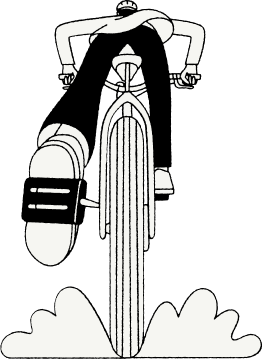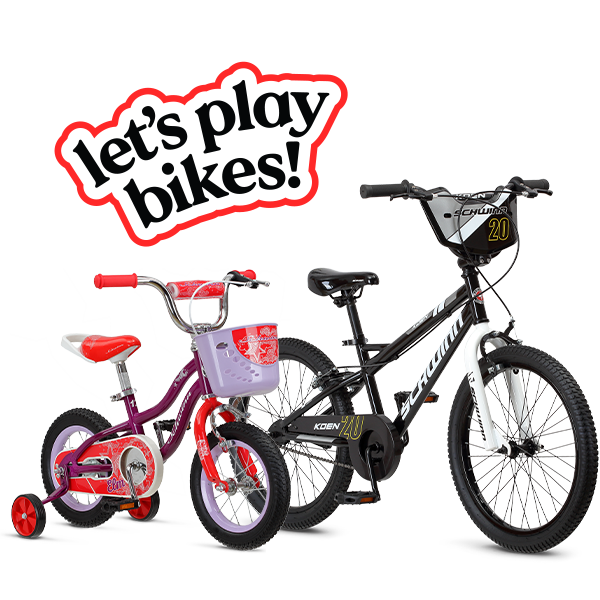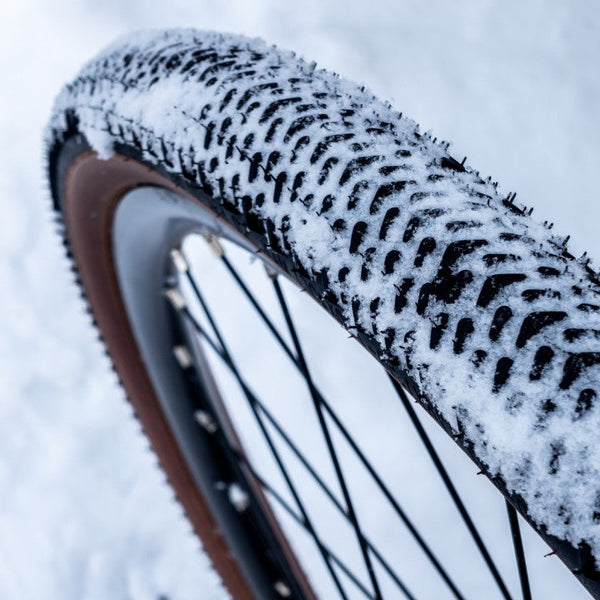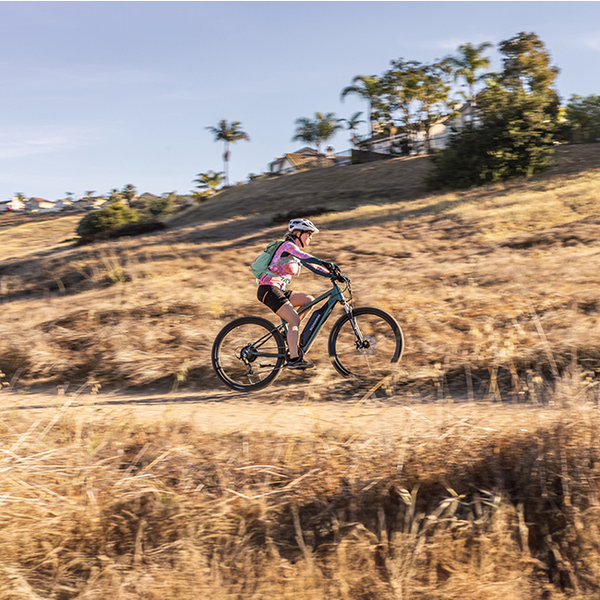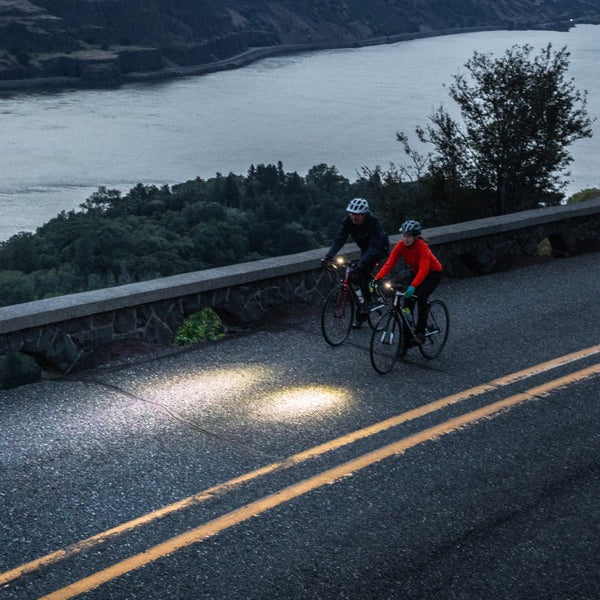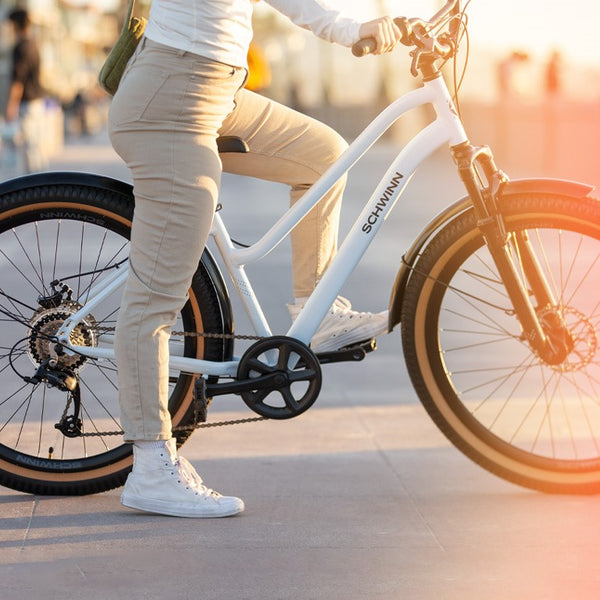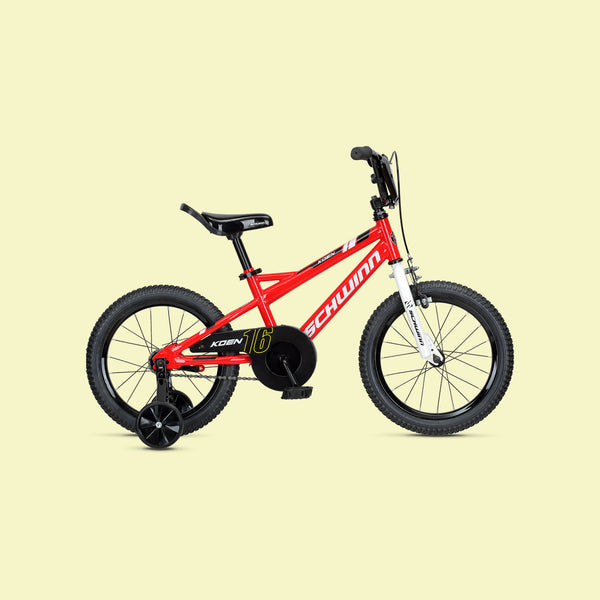We've talked about pumping up bike tires before, but what do you do when your tire is completely flat? Experiencing a flat tire when you are out on a ride is scary, but once you know how to fix it, you'll be ready to ride — even if your ride is interrupted.
What you’ll need:
- A good set of tire levers
- A portable bicycle pump
- A tire patch tube kit
- New tubes that correlate to your tire size
- A 15mm box or a crescent wrench if your bicycle does not have a quick release
How to fix a flat in 7 easy steps:
- Remove the wheel from the bike.
- Use your tire levers to pry the tire up and off the rim.
- Pull out the old tube. Inflate the old tube.
- Now, you have two choices: patch or get a new tube.
- Place the tire and tube back onto the wheel.
- Inflate your tires back to the recommended pressure and get on with your ride.
Now let's get into the details.
1. Remove the wheel from the bike.
Turn your bike upside down to remove the wheel — it's easier this way. If it's not a quick release, use a 15mm box or crescent wrench to remove the nuts. You might have to release your brakes in order to get the wheel through the brake pads, so squeeze the brakes together and unhook the cable from the brake pad.
2. Use your tire levers to pry the tire up and off of the rim.
Two tire levers can be spaced about 3 spokes apart, wedged under the bead (the inside band of the tire) and then hooked behind the spokes. Wedge the 3rd lever in and pry down. This should pop the tire bead up and onto the outside of the rim where you can use one lever to pull along the rim and pop the bead off.
Note: for changing a flat you only need to remove one side of the tire.

3. Pull out the old tube. Inflate the old tube.
Use your fingers to feel or listen to where the air is leaking from. Once you've found the hole in the tube, match the valve stem up to the valve stem hole on the rim to identify where the flat was on the tire. You'll want to check this area on the tire to make sure it is not damaged, and the tire is still usable.
4. Inspect the tire for glass, metal bits or anything else.
Bits of sharp debris may have caused the flat. Check for this by running your finger slowly around the inside of the tire casing. If you don't remove the item that created the puncture, you'll be flat again a few pedal strokes away from where you changed the first flat. Remove the offending bit carefully. Remember, this little object was sharp enough to cut through 7 layers of the tire.
5. Now, you have two choices: patch or get a new tube.
If you want to try to patch up the tube, you'll need to find the hole. Pump up the tube a little bit and stick it in a pail of water. Squeeze the tube and look for the bubbles. That'll tell you where the hole is. Then, just use a tire patch tube kit to repair the hole.
Inflate your repaired tube, or your new tube just a little bit; enough so that it holds its circular shape just a little bit. (It will look like a round sausage.) Using a partially inflated tube actually makes working the tube back inside the tire easier and reduces the chance of pinch flats.
If you'd rather get a new tube, take your bike to a local shop for repairs. While you can't always prevent a flat tire, it's always a good reminder to take your bike in for an annual tune-up. Bike maintenance shops can detect any issues with your tire before you take it out for a ride.
6. Place the tire and tube back onto the wheel.
Start with the valve from the tube and stick that through the hole in the wheel. Then, place one side of the tire on the wheel. This will be easy. The tricky part is getting the other side of the tire onto the wheel.
Hold the wheel in your lap and pop the tire onto the rim using your thumbs, your fingers resting on the backside of the rim, as you work your hands around the wheel, away from each other.
Bend over and put that last, tough section of the wheel on your knee. Hold the tire with your weaker hand to keep it steady, and with your dominant hand, work about an inch of the section onto the rim. Pop it on by pushing down and forward with the heel of your hand. You can use a tire lever to wedge the tire back onto the rim, but you run the risk of popping the tube this way, so if you can avoid it, you should.
7. Inflate your tires back to the recommended pressure and get on with your ride.
The recommended pressure (PSI) is printed on the side of the tire. Note whether your tire has a Presta or Schrader valve. Most Schwinn pumps have a dual head that can accommodate both.

